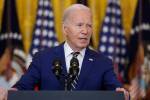Young, undocumented in Las Vegas wait as Trump weighs DACA
For nearly 2 million so-called DREAMers — undocumented immigrants brought to the U.S. as children or young teenagers — the initial weeks of Donald Trump’s presidency have been anxious ones.
“Everything I hear puts me on edge,” said Brenda, 22, of Las Vegas, one of the nearly 13,000 Nevada residents who received work permits and a temporary reprieve from deportation by signing up for the Deferred Action for Childhood Arrivals (DACA) program. “Even thinking about doing this interview puts me on edge.”
DREAMers like Brenda, who spoke on condition that she only be identified by her first name out of concern for being targeted, and their advocates say their apprehension has grown amid conflicting signals on immigration and the fate of DACA sent by the new president and his administration.
Trump has backtracked on a campaign promise to end DACA and has hinted he is open to the possibility of a compromise on illegal immigration that could provide permanent legal status to those brought into the country as youngsters by parents or other relatives.
‘A VERY, VERY DIFFICULT SUBJECT’
“DACA is a very, very difficult subject for me, I will tell you,” he said at a Feb. 16 news conference, adding that there are “some absolutely, incredible kids” in the program.
At the same time, he has dramatically expanded immigration enforcement efforts nationwide. And though his executive orders did not roll back DACA, at least two undocumented immigrants who participated in the program have been taken into custody by federal agents in recent weeks.
That has some legal experts urging eligible immigrants to refrain from signing up for DACA, which requires applicants to provide personal information, fingerprints and undergo an extensive background check, until the situation becomes clearer.
“(Applicants) should get their individual situation assessed to weigh the pros and cons and understand the ramifications,” said Amy Rose, legal director of ACLU of Nevada.
Michael Kagan, a UNLV law professor and director of the school’s Immigration Clinic, was more blunt.
“This is not something that someone who is at risk of deportation would want to do because you are essentially telling the Department of Homeland Security, ‘Here I am,’” he said.
That concern has been evident at recent immigrant community events, including one Tuesday at Rancho High School in support of the BRIDGE Act, a bipartisan bill that would provide all DREAMers with DACA-like protections that could only be repealed or altered by Congress.
That event was attended by some DACA participants, but friends with U.S. citizenship spoke on their behalf.
“They are afraid to speak up,” senior Monika Martinez said. “… But, you know what, it’s OK. There are people like me. I’m documented. We will speak for them. We have their full support.”
Astrid Silva of Las Vegas, who has emerged as a national spokeswoman for the DREAMers because of high-profile appearances on behalf of the Democratic Party, said such concerns are understandable given the political climate.
“This administration is like nothing else we have ever seen,” she said by email. “I hope that those who are undocumented and would like to raise their voice feel encouraged to do so, but we also understand that while everyone is subject to immediate deportation thanks to the executive actions … people will choose to not come out.”
DACA DIVISIONS IN GOP
The DACA issue has divided conservatives. Some hard-liners have urged Trump to act on his campaign promises to remove anyone who illegally entered the U.S.
“The administration isn’t being hard-line enough on the DACAs because Trump campaigned saying that DACA was an illegal program and would be ended on day one,” said Mark Krikorian, executive director of the Center for Immigration Studies.
“I’m not even saying he didn’t believe it when he said it,” added Krikorian, who said he voted for Trump. “It’s just that it sounded good. People cheered, and then he got into office and said, ‘Boy, you know, I don’t know what we’re going to do about this.’ My sense is the White House really hasn’t settled on what they should do about DACA.”
Other Trump supporters, like Tori Alby of Reno and Niger Innis of North Las Vegas, say they agree with the president that the DREAMers deserve special consideration.
DACA participants “need to be protected,” said Alby, spokesperson for the new grass-roots group March4Trump. “They are filling out the paperwork, they are following the procedures in order to be in that program. If they were trying to do ill will, I don’t think that they would.”
“We are incredibly supportive of him waiving DACA recipients,” said Innis, spokesman for the Congress of Racial Equality, “in particular those who have been here for a long period of time, who have not committed any additional crimes since coming to this country and for all intents and purposes are culturally Americans.”
Despite such sentiments, those in DACA remain concerned that Congress and the administration could end the program and revoke their temporary legal status, which must be renewed every two years.
Francisco, another Las Vegas DREAMer, who was brought to the U.S. from Mexico at the age of 2 by his parents, said being undocumented wasn’t a big problem when he was a kid, attending Clark County public schools.
But as he aged, he began to encounter situations where his undocumented status was problematic, such as taking the SAT, applying for college scholarships and getting a driver’s license, all situations where he was asked to supply a Social Security number. He said he began avoiding such rites of passage.
That changed after President Barack Obama enacted DACA in June 2012.
“It was like the light at the end of the tunnel,” said Francisco, who also spoke on condition that he only be identified by his first name out of fear of being targeted, “like you were able to see daylight again, like you were able to breathe. … I could drive freely. I could travel. I could get on an airplane. I could go places and see things.”
With the work permit and protection from deportation it provided, he also was able to pursue the American dream in earnest, earning a bachelor’s degree at UNLV, excelling in his career and last year buying a two-story, 2,500-square-foot home in Las Vegas.
No one can say what would become of his life if the program were to disappear, but immigration attorney Hardeep Sull said a repeal “would be devastating economically for a lot of them and even economically for us.”
‘ONE DAY AT A TIME’
Brenda, who like Francisco came to the United States at the age of 2, said she’s trying to take things “one day at a time, because I don’t know when my last day under DACA will be.”
She said the recent detentions of DACA enrollees in Mississippi and Washington state make her wonder “if that could happen to me for speaking out.” Even her recent DACA renewal was “a very scary situation because I had no guarantee that resubmitting my application was going to protect me if he (Trump) repealed DACA.”
Her renewal came through without a hitch, she said, allowing her to continue with her studies at UNLV and pursue her goal of becoming a high school guidance counselor working with minority and undocumented students.
She wants them to “understand that just because of the color of their skin or where they come from or any other barrier, it doesn’t mean they can’t get an education, and it doesn’t mean they shouldn’t strive to be better and to better their lives.”
Contact Lucy Hood at lhood@reviewjournal.com or 702 387-2904. Follow @lucyahood on Twitter.
Dreamers apprehended
Last week, U.S. Immigration and Customs Enforcement (ICE) agents detained Dreamer Daniela Vargas after she denounced ramped up immigration raids, including the arrests of her brother and father, at a news conference in Jackson, Mississippi. Vargas had enrolled in DACA, but her status expired in November because she could not immediately afford the cost of renewal, her attorney said.
As Vargas' case unfolded, Dreamer Daniel Ramirez Medina was well into his third week in custody after ICE agents arrested him at his father's home outside Seattle. In court filings, the Justice Department claims Ramirez admitted to having gang ties, while his attorneys say he is a law-abiding father who, as part of the DACA renewal process, passed two background checks determining he was not a threat to national security or public safety.
— Lucy Hood












































